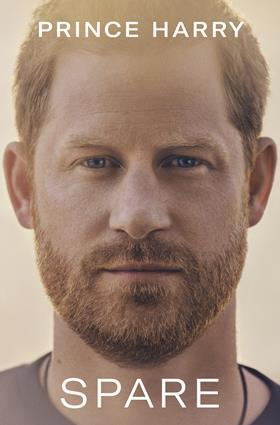Prince Harry has been vilified for his tell-all memoir, but Rev Canon Yvonne Richmond Tulloch says Christians should show compassion for a man processing unresolved grief

Much has been written about Prince Harry and his wife, Meghan. It seems everyone has an opinion concerning the cause of ’The Royal rift’. But the thing that strikes me most about his new memoir Spare (Penguin Random House) is the extent to which unresolved grief has affected him and his family.
Grief underlies this whole story in fact. We see it in Harry’s desire to visit the tunnel where Princess Diana died, we sense it in his resorting to drugs to dull his pain and we feel it in the anger he expresses towards his brother and the wider family – not to mention his own mental health challenges.
Losing his mother
Bereavement is one of the hardest experiences anyone can suffer, and the loss of a mother can be particularly hard, especially during adolescence. The princes will have needed much support to come to terms with their loss and to find strategies for coping with the future.
Instead, it seems much was required of them: shaking hands with people in the crowds and walking behind their mother’s coffin at her funeral, watched by millions.
One of the many revelations in his new tell-all book is that Harry hardly cried – then or indeed since. Rather than being facilitated to process his loss and grief, it seems he was encouraged to suppress it.
Perhaps only now is that grief being revealed.
Unresolved issues
The princes had already suffered their parents’ separation. Unresolved loss accumulates, and past, unresolved pain can resurface with new losses. The pain of Princess Diana’s death will have been immense for Princes William and Harry, not least because Princess Diana was the person who gave them most comfort and support in difficult times.

Bereavement leads to heightened feelings, misunderstandings and over-reactions. Arguments often arise in the bereaved family because everyone is grieving and reacting in these ways.
Harry has said that Spare is about trying to give his side of the story in a dispute in which only one side has been given to date – leaked, he says, to the media. He argues that he and Meghan have suffered from bullying, abuse and unconscious bias.
Anger is very prevalent in bereavement, along with distorted perceptions. Expressing feelings can diffuse intensity and bring clarity, after which the bereaved person will often view matters differently, seeing their perceptions as either wrong or exaggerated. While this may well be the case for Harry, allegations as serious as those raised should not be dismissed outright. Feelings may be more intense because of grief, but that doesn’t make the allegations untrue.
There is little awareness of the psychological effect of grief. Grief can ‘mess with our brains’, causing memory loss, brain fog, fears, psychosis, etc. Unsupported, grief can lead to depression, fear, anxiety, self-harm, nervous break-down and any number of mental health issues. Prince Harry has mentioned many in his memoir, in particular, fear and anxiety.
It’s very common to fear losing other loved ones after a death and it wouldn’t be surprising for anyone who has lost the one person they loved the most to fear losing a new love in their life. For Harry this will be especially so if he sees Meghan being treated by the media and Royal Family as his mother was. By going to the press on his own terms, it is a way of regaining some control over his life.
A Christian response
As Christians we are called to come alongside the vulnerable, defend the weak, establish truth and justice and be peace makers. So in the middle of the media maelstrom surrounding Harry and Meghan, I would ask you to consider:
1. What you can to learn about grief and bereavement. Grieving people need others to come alongside them with understanding and support, helping them to reach a place of comfort and healing in life. You might find Bereavement Care Awareness training and Bereavement Friendly Church training helpful.
2. Watching the Netflix series or reading Prince Harry’s book, rather than making judgements based on media reports or other people’s opinions, so that Prince Harry is listened to and heard. Every grieving person needs to be listened to – it’s part of their healing – and in this case Prince Harry is saying he hasn’t been heard.
3. Supporting Prince Harry’s call for reconciliation – for conversations behind the scenes, ideally with a mediator. He may not have helped matters by what he has done, but he has suffered great trauma and been under immense pressure – and he says he has repeatedly reached out for reconciliation with letters and other approaches but has been ignored.
4. Offering bereavement support to your own community through The Bereavement Journey, run now by over 180 churches across the UK. It is proving popular and very effective in enabling thousands of grieving people, no matter when the loss, to understand themselves and their own situations and to reach a place of healing and hope.





































6 Readers' comments